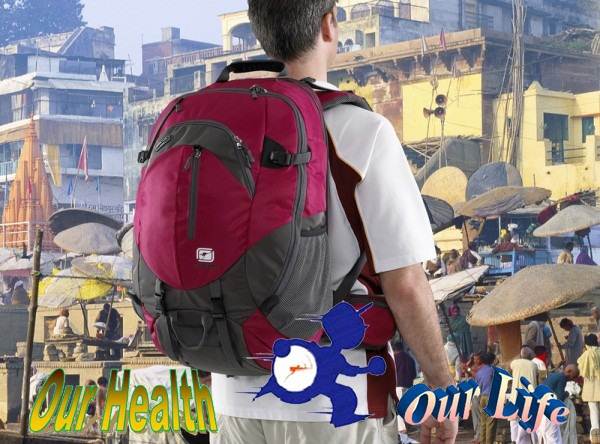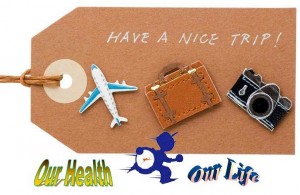Traveling abroad is very exciting.
If you want to truly enjoy your trip, you need to get ready and plan ahead. Remember it, a successful travel is the result of careful planning.
If this is your first time traveling abroad or possibly you simply require a refresher, you need to know some helpful tips about you should to do or bring before your trip.
Here some helpful tips before traveling abroad:
- If you travel often or will be living overseas, compile a list of the following information. Make a copy to leave with someone you trust. If you are moving overseas, keep one with you.
- Passport number, date and place of issue and expiration date.
- Bank account numbers, including bank address and ABA Number or Swift Code.
- Credit card numbers and phone numbers to call in case you lose the cards.
- Insurance policy information.
- Car information, including registration, serial and tag numbers and drivers license information.
- Your social security number.
- Current prescriptions, including eyeglasses.
- Contents and location(s) or safe deposit box(es).
- Debts and assets.
- Professional and personal contacts.
- In addition, you should leave in a safe deposit box or with someone you trust:
- Powers of attorney.
- Vital documents, such as marriage and birth certificates, social security cards, and naturalization papers.
- Deeds, leases and mortgages.
- Investment information.
- Insurance policies (life, home, car, etc.).
- Inventory of your personal belongings and/or the contents of your home.
- If you do not have a will, you should prepare one. Leave the original will with your lawyer or executor.
- You should have a supply of extra passport photos on hand for visas or a new passport, as well as a notarized photocopy of your passport (it may suffice in an emergency). You should also obtain an international drivers license before you leave for your assignment.
- If you have a pre-existing medical condition, obtain a letter from your doctor describing the condition and any prescription medications you are taking, including the generic names of the prescribed drugs. Any medications that you take with you should be left in their original containers and be clearly labeled. You should check with your embassy to make sure that the medications you are taking are not considered illegal. You should also obtain a complete health report from your doctor.
- If you are posted to a country, will be staying more than two weeks, or will be traveling in rural areas, register yourself (and your accompanying family members) with the embassy.
- Fill in the emergency information page of your passport before you leave the U.S.
- Read the Consular Information Sheets (and Public Announcements or Travel Warnings, if applicable) for the countries you plan to visit.
- Familiarize yourself with local laws and customs of the countries to which you are traveling. While in a foreign country, you are subject to its laws.
- Leave a copy of your itinerary with family or friends at home and in the Dean’s Office so that you can be contacted in case of any emergency.
- Learn about your health insurance and where to go if you get sick or injured. Learn about your emergency medical evacuation procedures. Learn about Johns Hopkins’ personal accident insurance and group travel insurance. Carry policy numbers and contact information with you
While You Are Abroad – Basic Security Tips
[ads]
- It is your responsibility to keep the passports and visas of yourself and your family up-to-date.
- Carry your emergency medical insurance card with you at all times.
- Be aware of your surroundings at all times. Know where you are, what is happening and who is around you. If you are lost, don’t show it.
- Familiarize yourself with your neighborhood. Locate the nearest police station, hospital, or clinic, shops and restaurants.
- Get to know your neighbors. They may be able to help you in an emergency.
- Vary your routine. Take a different route from time to time, changing the hours that you leave for or come home from work. Most muggings, attacks and kidnappings happen while leaving or returning home.
- Learn about the town or city you are living in, including anything to be wary of (e.g., pickpockets in the market) or places to avoid altogether.
- Stay informed: listen to the local news and read the local newspapers.
- Learn some of the local language.
- Don’t call unnecessary attention to yourself by displaying large amounts of cash or wearing expensive-looking jewelry.
- Distribute your cash about your person. Don’t keep it all in your wallet or purse or one pocket. Use a money belt. Keep a small amount of cash in your pocket for easy access and keep the rest concealed.
- When using taxis, pay the driver after you get out of the vehicle.
- Do not allow anyone you don’t know to lead you to a deserted area or away from a public place.
- During periods of civil unrest, stay home. If you have to go out, use common sense. Avoid large crowds and getting into arguments, especially with soldiers, police or anyone carrying weapons.
- During periods when there is a higher-than-normal risk of violence against American citizens and U.S. interests, you should also: keep a low profile; avoid areas where foreigners are known to congregate (e.g., hotels, restaurants, public markets, shopping malls, and clubs), especially during peak hours.
- Be cautious about providing personal information (e.g., name, address, place of business) to unknown persons. Be unpredictable:
– Vary your travel routes.
– Vary your times of departure. Allow a minimum of a one-hour departure window.
– Do not keep routine, standing appointments.
– Change transportation. If you have a second car, use it on occasion. Also occasionally utilize taxis in lieu of a personal vehicle.
- Do not leave your luggage unattended in public areas. Do not accept packages from strangers.
Please read this article before taking a trip: Tips before taking a trip




The tips are really amazing… I just love it. these information will help me in emergency………………
Hi Andy,
Thanks for like and love this post.
If i go abroad any time . Must i follow this.
Hi Soriful,
Thanks for your comment and your interest. I will suggest you, read this post that will help you.
Tips before taking a trip